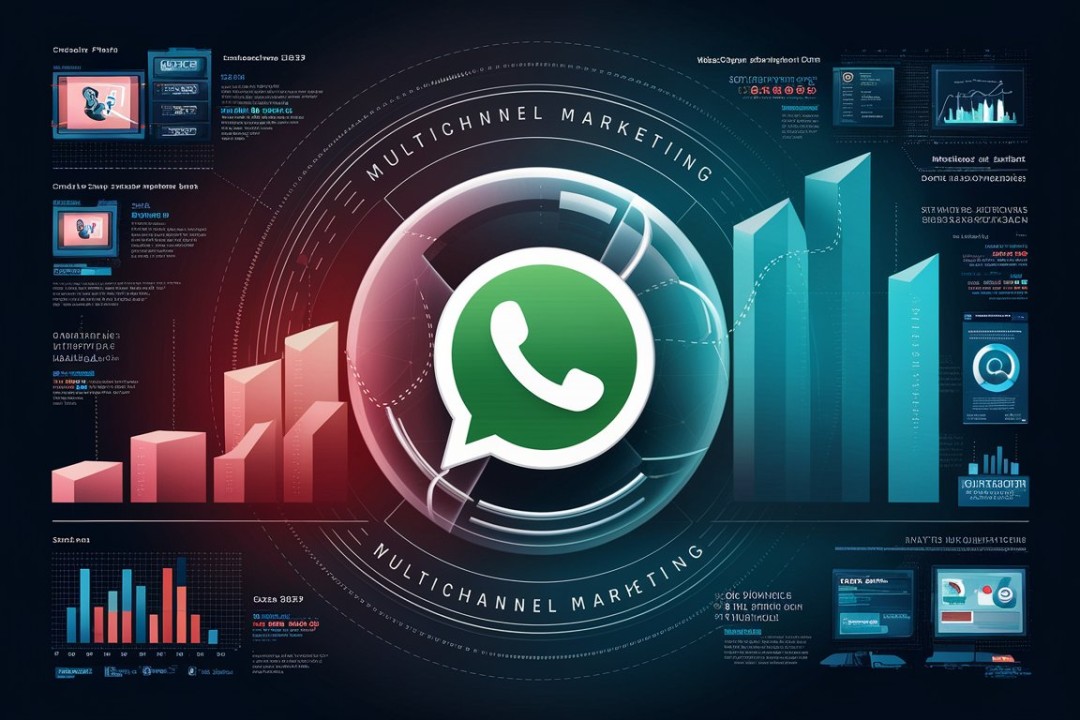
In today’s highly competitive digital landscape, multichannel marketing has emerged as a critical strategy for businesses aiming to engage customers across various touchpoints. This approach involves utilizing multiple communication channels to deliver a consistent and seamless customer experience. As new channels continue to emerge, WhatsApp has gained significant traction as a powerful tool in the multichannel marketing arsenal.
The Importance of Multichannel Marketing
Multichannel marketing allows businesses to reach their customers through various platforms, including email, SMS, social media, and more recently, messaging apps like WhatsApp. This strategy ensures that businesses can connect with customers on their preferred platforms. This enhances engagement and improves the chances of conversion. According to a report by Web.com, businesses using a robust multichannel marketing strategy see a higher return on investment (ROI) and improved customer acquisition rates (WebCom) (Segment).
WhatsApp as a Marketing Channel
WhatsApp has rapidly become a preferred channel for businesses due to its extensive user base and high engagement rates. With over 2 billion active users globally, WhatsApp offers a direct and personal way to communicate with customers. Businesses using WhatsApp have reported significant improvements in customer engagement and ROI. For example, Vogacloset achieved a 30x ROI by integrating WhatsApp into their marketing strategy, making it their highest-performing channel (Insider).
Comparison Matrix: WhatsApp, SMS, and Email

Effectiveness and Business Value
WhatsApp: High engagement and personalization make WhatsApp ideal for real-time customer support and personalized marketing. The ability to send multimedia messages enhances user interaction, leading to higher satisfaction and conversion rates.
SMS: SMS is highly effective for urgent and time-sensitive communications due to its instant delivery and high open rates. It is particularly useful for sending alerts, reminders, and short promotional messages.
Email: Email remains a cornerstone of digital marketing, suitable for detailed and long-form content such as newsletters, product updates, and promotional campaigns. It allows for deep personalization and automation, making it a powerful tool for nurturing leads and maintaining customer relationships.
Key Takeaways
- Customer Reach and Engagement: WhatsApp, with its vast user base and high engagement rates, is a powerful tool for personalized customer interactions. Its multimedia capabilities offer rich communication experiences.
- Complementary Channels: While WhatsApp excels in real-time, personalized communication, SMS and email continue to play crucial roles in a comprehensive multichannel strategy. SMS is best for urgent messages, while email is ideal for detailed content and long-term engagement.
- Integration and Automation: Effective multichannel marketing relies on integrating various platforms to create seamless customer experiences. Tools like Twilio Engage and Trengo facilitate the integration of WhatsApp with other channels, enabling automation and enhancing efficiency (Customer engagement platform | Trengo) (ControlHippo).
- Data-Driven Insights: Utilizing analytics across all channels is essential for understanding customer behavior and optimizing marketing strategies. Insights from WhatsApp interactions can provide valuable data to refine personalization and improve customer engagement.
By strategically incorporating WhatsApp into their multichannel marketing strategies. Businesses can enhance customer satisfaction, drive higher engagement, and achieve better overall results. As the digital landscape continues to evolve, staying ahead with innovative and integrated marketing approaches will be crucial for sustained success.
Read Why Digital Adaptation is no longer optional in business
